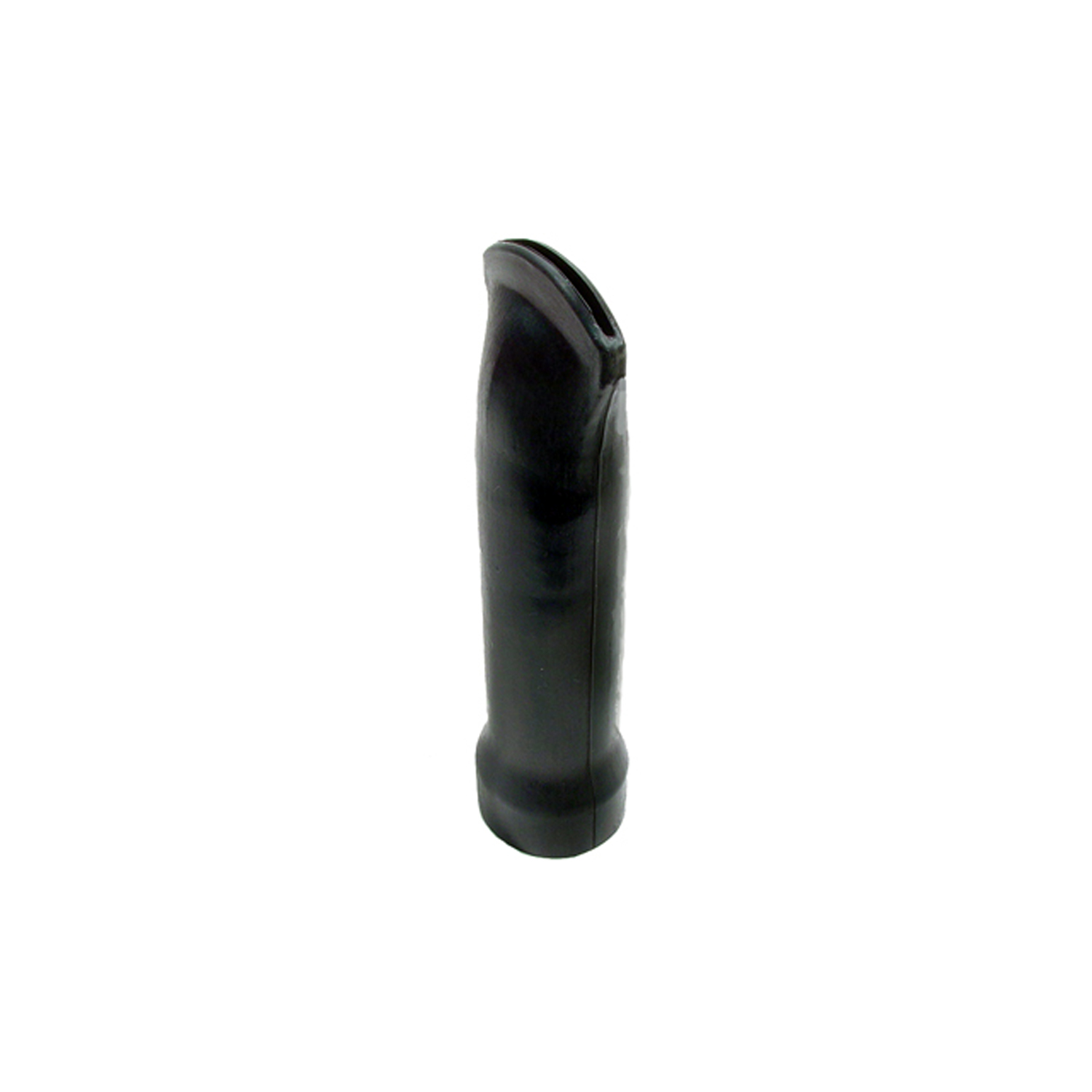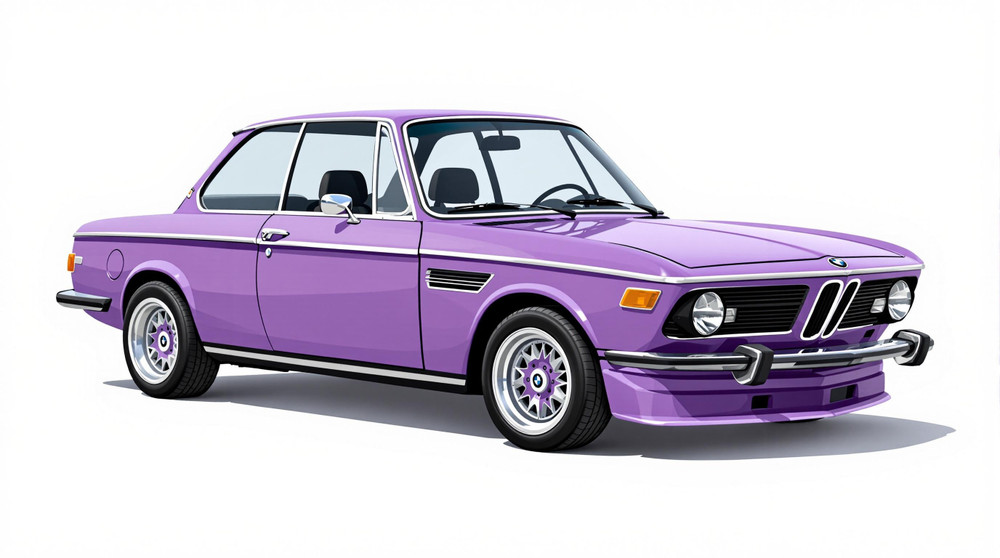Image of 1973 Bmw 2800, Note: These illustrations use artistic license and may differ from actual historical models.
Performance Metrics
Fundamental Metrics
Emotional Appeal
MMP Rating
| Engine Specifications | |
|---|---|
| Engine: | Inline 6 |
| Displacement: | 2.8L |
| Horsepower: | 170 hp |
| Torque: | 180 lb-ft |
| Compression Ratio: | 9.0:1 |
| Ignition System: | Electronic |
| Cooling System: | Water-cooled |
| Performance Specifications | |
| 0-60 Time: | 9.1 seconds |
| 1/4 Mile Time: | 16.8 seconds |
| Top Speed: | 118 mph |
| Transmission and Drive | |
| Drive Type: | Rear-wheel drive |
| Transmission Type: | 4-speed manual |
| Fuel and Efficiency | |
| Fuel System Type: | Fuel Injection |
| MPG: | 18 MPG |
| Dimensions and Brakes | |
| Brakes: | Disc brakes front, drum brakes rear |
| Wheelbase: | 103.3 inches |
| Weight: | 3,000 lbs |
Note: Specifications for classic cars are given to the best of our ability, considering the limited and variant data available.
1973 BMW 2800: A Blend of Luxury and Performance
The 1973 BMW 2800 is a testament to the era when luxury sedans began to incorporate the thrill of sports car dynamics. Born in Munich, Germany, this model was part of the E3 series, which showcased BMW's commitment to creating vehicles that delivered both comfort and driving pleasure. At a time when automotive design was evolving rapidly, the BMW 2800 stood out as a beacon of innovation and class. One particularly intriguing fact about this vehicle is that it laid the groundwork for what would eventually become the legendary BMW 7 Series.
Design and Innovation
The exterior styling of the 1973 BMW 2800 was a harmonious blend of elegance and aggression. The elongated hood, subtle use of chrome accents, and the iconic kidney grille exuded sophistication. Inside, occupants were greeted with high-quality materials and an ergonomic layout that was ahead of its time. Notable technological features included four-wheel independent suspension and fuel injection—an advanced system for its era. The color palette ranged from conservative hues to more vibrant options, with Polaris Silver and Nachtblau being among the popular choices. While sedan body styles were common, the coupe version, known as the 2800 CS, became iconic for its sleek profile and sportier demeanor.
Historical Significance
The 1973 BMW 2800's impact on automotive design was substantial. It introduced a level of sportiness to the executive sedan market that was previously unseen. Its balance of performance and luxury set a new benchmark for competitors and influenced future generations of BMW models. The E3 series is often credited with cementing BMW's reputation as a manufacturer of driver-focused luxury cars.
Performance and Handling
Underneath the hood, the BMW 2800 boasted an inline-six engine that delivered smooth power and a top speed that could reach upwards of 125 mph—a respectable figure for its time. The sprint from 0-60 mph was achieved in just under 9 seconds. On winding roads or over bumps, the car maintained composure thanks to its well-tuned suspension system. Drivers often praised the symphony from the exhaust and the tactile feedback through the steering wheel, which together created an engaging driving experience.
Ownership Experience
The 1973 BMW 2800 found its niche among those who appreciated a daily driver with sporting credentials. It also garnered attention on the show circuit due to its timeless design. Maintenance and reliability were considered better than average for a European luxury car of that period, though some components could be costly to repair or replace due to their advanced nature for the time.
Fun Facts
This model has seen its share of limelight with rare editions like the Alpina-modified versions gaining cult status among enthusiasts. Celebrity ownerships have also added to its allure. While not known for breaking speed records, it held its own in terms of sales success within its segment. Common criticisms typically revolved around fuel consumption—a less pressing concern during its heyday.
Collector's Information
Today, a well-preserved 1973 BMW 2800 can fetch anywhere from $15,000 to $40,000 depending on condition, mileage, and provenance—though these figures can fluctuate based on market interest. With production numbers not exceedingly high compared to mass-market vehicles, finding one in pristine condition can be challenging. Over time, these models have shown a steady appreciation in value as classic car enthusiasts seek out these embodiments of BMW's heritage.
Conclusion
The 1973 BMW 2800 is more than just a classic car; it's a piece of automotive history that represents a pivotal moment in luxury sedan development. With its combination of performance, innovation, and timeless style, it continues to captivate collectors and driving purists alike. Whether on today's roads or at classic car shows, this Bavarian marvel remains an enduring symbol of when driving pleasure became an essential luxury.
1973 Bmw 2800 Catalog of Parts
 1973 BMW 2800 Cowl Drain Tube. 1-3/8" I.D., 1-1/2" O.D., 5-3/4" High-VH 108Cowl Drain Tube. 1-3/8" I.D., 1-1/2" O.D., 5-3/4" High. Each
1973 BMW 2800 Cowl Drain Tube. 1-3/8" I.D., 1-1/2" O.D., 5-3/4" High-VH 108Cowl Drain Tube. 1-3/8" I.D., 1-1/2" O.D., 5-3/4" High. EachWhy Choose Metro?
For over 100 years, Metro Moulded Parts has been the pinnacle of quality in classic car restoration parts. Our commitment to precision and authenticity in every component ensures a perfect fit and an OEM-level appearance.
- Expert Craftsmanship & Quality: Each part is a testament to our dedication to reliability and perfection, crafted from original designs and thoroughly tested.
- Advanced Technology: We use cutting-edge techniques to create flawless, long-lasting parts that surpass others in performance.
- SuperSoft Sponge – The Ultimate Door Seal: Not only are our door seals 30% softer than competitors', but they're also guaranteed to never leak. They effectively reduce wind and road noise, enhancing your classic car's comfort and driving experience.
- Proudly American: Our parts are a product of American craftsmanship, made in the USA with a spirit of excellence and heritage.
- Unrivaled Warranty: We back our products with a 30-year industry-leading warranty, a testament to our confidence in their quality.
Join us in preserving the legacy of classic cars with parts that are crafted for perfection, not just made.

